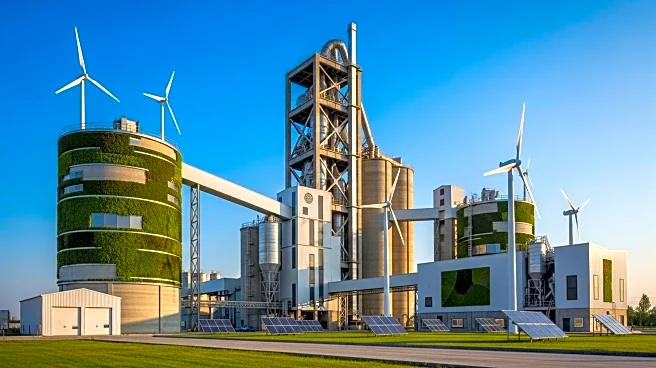What's Happening?
Major cement manufacturers in Bangladesh are transitioning to eco-friendly production processes to reduce energy consumption and pollution. This shift involves replacing traditional ball mills with advanced vertical roller mills (VRM) and roller press (RP) equipment. These technologies are more energy-efficient and emit fewer pollutants, contributing to sustainability in the industry. Nine large companies, including Shah Cement and LafargeHolcim, have adopted these methods, which reduce energy use by 25% and cut pollution by 70%. Despite the higher initial costs, these technologies promise long-term benefits for the industry.
Why It's Important?
The move towards eco-friendly production in the cement industry is significant as it addresses the global concern over industrial carbon footprints and air pollution. By adopting advanced technologies, these companies not only comply with environmental standards but also enhance their competitiveness in the global market. This shift could lead to increased cement exports and improved public health by reducing pollution-related health hazards. The initiative reflects a broader trend of industries adopting sustainable practices to mitigate environmental impacts.
What's Next?
The cement industry may face challenges in maintaining and repairing the new equipment due to a shortage of skilled technicians. Companies might need to hire experts from Europe, where these technologies are more common. Additionally, ongoing studies will assess the remaining pollution despite the adoption of modern technologies. The industry is expected to continue its transition towards greener practices, potentially influencing other sectors to follow suit.
Beyond the Headlines
The adoption of eco-friendly technologies in the cement industry highlights the ethical responsibility of businesses to reduce their environmental impact. This shift could trigger long-term changes in industry standards and consumer expectations, promoting sustainability as a core business value.










